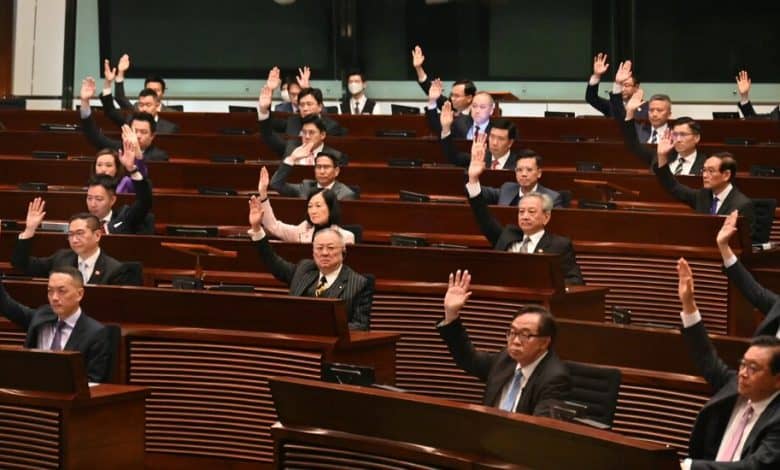Wednesday Briefing: Hong Kong’s Sweeping New Security Laws


The new legislation was passed with extraordinary speed.Credit…Peter Parks/Agence France-Presse — Getty Images
Sweeping security laws deal another blow to Hong Kong
Hong Kong passed national security laws at the behest of Beijing. The legislation, known as the Article 23 laws, will thwart decades of public resistance. Critics said the move would strike a lasting blow to the partial autonomy that China had promised the city.
The first attempts to pass such legislation, in 2003, set off mass protests. Top officials resigned, and city leaders were reluctant to raise the matter again in subsequent years for fear of public backlash. An earlier national security law imposed by Beijing in 2020 has effectively stifled street protests. This time, the streets of Hong Kong were quiet.
I spoke with Tiffany May, who covers Hong Kong for The Times.
Amelia: How will these laws affect Hong Kong?
Tiffany: Whether it makes things better or worse depends on whom you ask.
Hong Kong has been an Asian financial center for decades because it was seen as a gateway to business opportunities in the mainland with an independent judiciary as its backbone. It also enjoyed freedoms unimaginable in the rest of the country.
But in recent years, the city has more closely followed China’s hard-line approach. The new national security bill, known as Article 23 legislation, targets ambiguous offenses such as “external interference” and “theft of state secrets.”
Critics say that this could chill all criticism of China and pose new risks for international business operations, eroding the very freedoms that had made the city an international business hub.